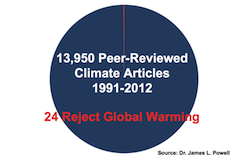According to the Global Renewable Fuels Alliance (GRFA), 62 countries now have biofuels friendly policies in place that have driven global demand to over 1 million barrels per day. To help people around the world keep track of the changing political landscape, GRFA has launched an Interactive World Biofuels Map available on their new website.
“It is amazing to watch the growth of the biofuels industry from a global perspective,” said Bliss Baker, spokesperson for the GRFA. “Today, governments have embraced biofuels in every corner of the world, from Australia to Zimbabwe.”
 One of the latest countries to enact a biofuels mandate is India. Currently their mandate is set at 5 percent ethanol content and scheduled to increase to 10 percent as soon as production capacity is in place. India has ultimately set a goal of 20 percent for all biofuels content by 2017.
One of the latest countries to enact a biofuels mandate is India. Currently their mandate is set at 5 percent ethanol content and scheduled to increase to 10 percent as soon as production capacity is in place. India has ultimately set a goal of 20 percent for all biofuels content by 2017.
“Enacting biofuels friendly policies in developing countries and growing economies like India will be crucial for the continued growth of the global biofuels industry and reducing our reliance on crude imports,” said Baker. “The GRFA applauds the government of India for taking the steps to reduce its reliance on crude oil and setting a plan in place to become a global leader in biofuels use and production.”
Baker explains that the new Interactive World Biofuels Map clearly shows that biofuels production and policies are no longer limited to the United States and Brazil, but have spread to numerous countries that are struggling to reduce GHG emissions and reduce their reliance on crude imports.
“It is interesting to note that several African countries now have biofuels friendly policies in place. Countries like Nigeria, Ethiopia, Sudan and Mozambique all now have biofuels friendly policies in place to encourage the use and production of renewable fuels. In total, ten African countries have implemented biofuels friendly policies to reduce their crude oil reliance,” concluded Baker.










